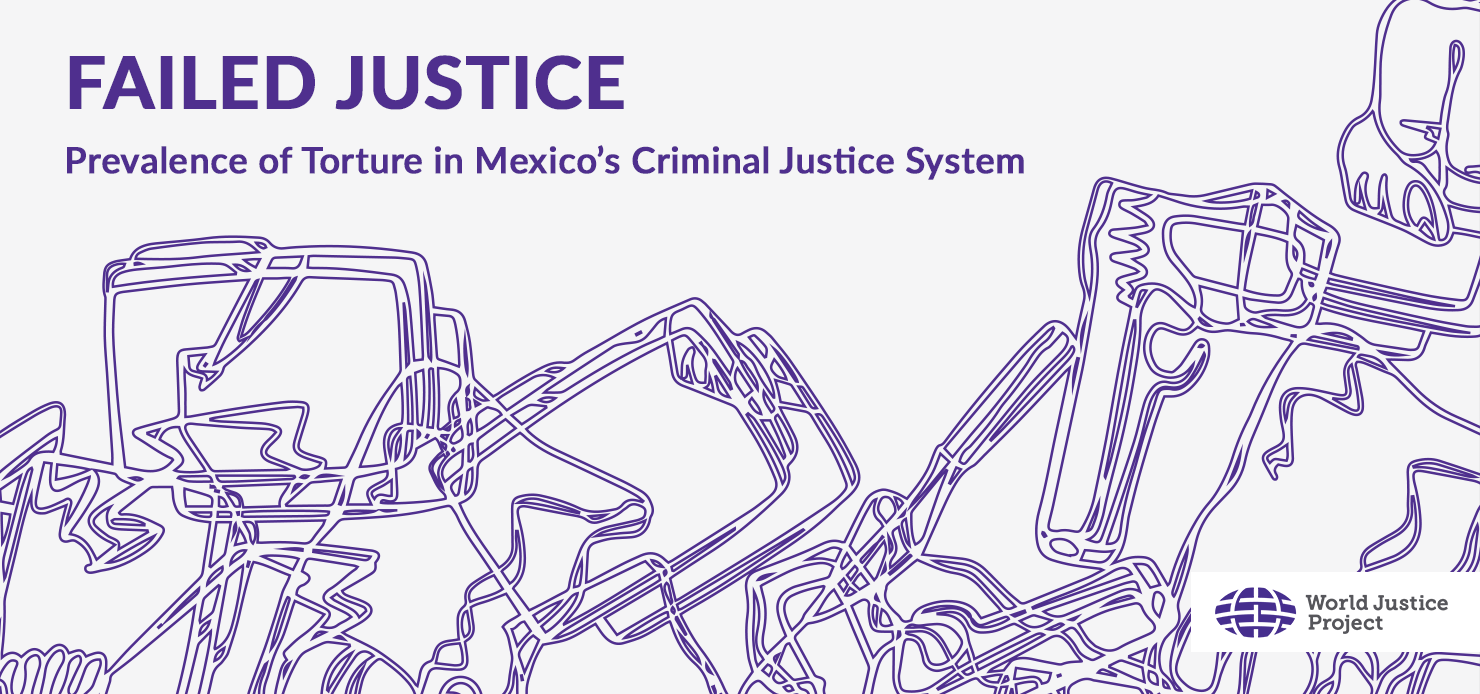

In 2016, the World Justice Project (WJP) collaborated with Mexico’s National Institute of Geography and Statistics (INEGI) to develop the National Survey on Prison Inmates (ENPOL). Out now, Failed Justice: Prevalence of Torture in Mexico's Criminal Justice System analyzes quantitative evidence of the cases of thousands of Mexican persons that are victims of torture or ill-treatment in Mexico while being accused and processed in the Mexican criminal justice (state and federal) systems. The new WJP report offers systematized qualitative evidence from in-depth interviews with procedural criminal justice stakeholders. The objective of this analysis is to illustrate, through quantitative data, the extent of the prevalence of torture or ill-treatment throughout different stages in the process of arrest or detention, criminal investigation, accusation, and life in prison. Qualitative research additionally provides analytical data to question the hypotheses of this research.
The data offer compelling evidence that this sort of state violence is carried out by criminal justice operators mostly because they believe it is a means to obtain valid probatory evidence. Furthermore, to a lesser extent, torture is also seen as a means of social control or punishment in the penitentiary system.
The starting point of the WJP team for this analysis is statistical evidence. The sample analyzed corresponds to the cases of 51,658 prison inmates that were arrested from 2006-2016, interviewed by INEGI. This sample is representative of a population of 187,784 individuals who were deprived of their freedom. The survey contains data concerning people whose criminal prosecution resulted in pretrial detention or a final conviction punishable by imprisonment. The ENPOL examines the other side of the issue by analyzing who is in prison in Mexico and the course of action that led to their incarceration. The survey is based on a random sample of individuals from different federal states and prisons.
Read the full report in English or Spanish at worldjusticeproject.mx.






